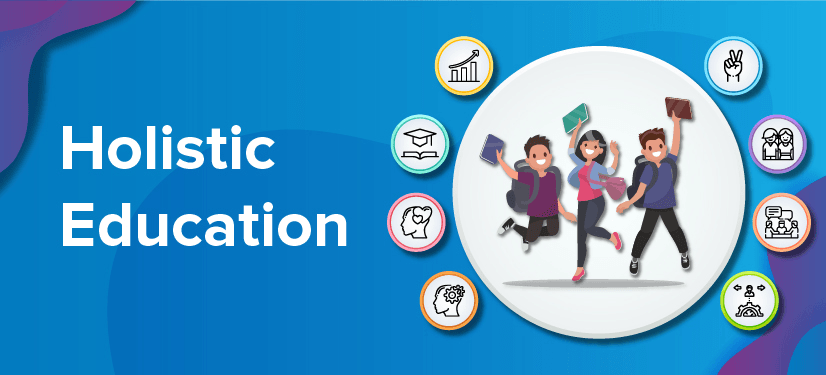The Role of Digital Learning in Schools
Choosing the right school for your child is one of the most important decisions you’ll make as a parent, especially in Dehradun, a city known for its high educational standards. In today’s evolving world, Digital Learning in Schools is no longer an added advantage; it’s a necessity. At Verified Campus, the Best school listing portal in Dehradun, we emphasise institutions that embrace digital learning tools to offer dynamic, student-friendly education that prepares children for the digital future. What is Digital Learning in Schools? Digital Learning in Schools refers to the integration of technology and digital tools into the classroom to enhance teaching, learning, and student engagement. It includes interactive whiteboards, tablets, learning management systems, video lessons, coding platforms, and online assessments. From smart classrooms to AI-driven progress tracking, Digital Learning in Schools empowers educators and students alike to make learning more flexible, personalised, and effective. Why Digital Learning in Schools Matters 1. Personalised Learning Paths Every child learns at a different pace. Digital platforms allow schools to tailor content to individual needs, enabling students to move ahead or revisit topics based on their grasp. This personalisation makes Digital Learning in Schools a powerful tool for improving outcomes. 2. Real-Time Feedback and Assessment Technology allows teachers to assess student performance instantly through online quizzes, tests, and analytics. They can track progress, identify gaps, and provide support in real time—something traditional teaching methods often lack. 3. Anytime, Anywhere Learning Gone are the days when learning was confined to the classroom. Through digital platforms, students can access lessons, assignments, and additional resources from the comfort of their homes. Digital Learning in Schools supports hybrid and flipped learning models, giving education a much-needed modern update. Key Components of Digital Learning in Schools 1. Smart Classrooms Equipped with projectors, digital boards, and internet access, smart classrooms bring abstract concepts to life with audio-visual tools. They support different learning styles and make lessons more interactive. 2. Learning Management Systems (LMS) LMS platforms like Google Classroom, Moodle, and Edmodo enable communication, assignment submissions, and content sharing between teachers and students. 3. E-Learning Content and Tools Digital content, including video lectures, animations, simulations, and gamified quizzes, makes complex concepts easy to understand. Platforms like Byju’s, Khan Academy, and Diksha are commonly used in Digital Learning in Schools today. 4. Artificial Intelligence and Data Analytics AI helps in customising learning paths and identifying students at risk of falling behind. Data analytics offer valuable insights into performance trends, engagement levels, and learning gaps. Benefits of Digital Learning in Schools 1. Increased Student Engagement Interactive videos, games, and simulations capture students’ attention more effectively than textbooks. Engaged learners tend to perform better and retain information longer. 2. Collaborative Learning Online discussion boards, group projects, and shared documents make it easier for students to collaborate, even beyond school hours. Digital Learning in Schools builds 21st-century skills like teamwork, communication, and problem-solving. 3. Preparing Students for the Future Digital literacy is no longer optional. In a world dominated by tech, students need to be proficient with the tools they’ll encounter in higher education and the workplace. Schools that adopt digital learning prepare students for tomorrow’s careers today. 4. Equal Learning Opportunities Online platforms can bridge learning gaps by offering additional resources to underperforming students or those with learning disabilities. Digital accessibility tools like screen readers and subtitles make learning inclusive. Secondary Keywords in Use In addition to the primary keyword, we include important secondary keywords to enhance topic relevance: Technology in education E-learning in schools Smart classrooms in India Online education tools Educational technology for kids Virtual classroom benefits Future-ready education These terms enrich the blog’s SEO structure while offering additional context for readers. Challenges of Digital Learning in Schools While Digital Learning in Schools has its advantages, it also presents some challenges that schools and parents must address: 1. Screen Time and Health Excessive use of digital devices can lead to eye strain, poor posture, and reduced physical activity. Schools must balance tech-based learning with physical education and outdoor time. 2. Data Security and Privacy As schools collect and store student data digitally, protecting it becomes critical. Institutions must use secure platforms and follow ethical data practices. 3. Teacher Training Not all teachers are tech-savvy. Schools must invest in regular training programs to ensure teachers can effectively use digital tools. 4. Infrastructure and Accessibility Not all students have access to stable internet or devices at home. Schools must identify and support students who lack the resources to participate fully in digital learning. Parents’ Role in Supporting Digital Learning Parents play an essential role in making Digital Learning in Schools successful. Here’s how they can support the transition: Monitor screen time and ensure breaks Create a quiet and tech-friendly study space at home Encourage healthy digital habits Communicate with teachers through school apps or LMS platforms Stay informed about the technology their children are using When parents and schools work together, digital education becomes more meaningful and impactful. Digital Learning and Holistic Development Many parents worry that digital education might hinder physical and emotional development. However, well-structured Digital Learning in Schools often includes: Virtual yoga and mindfulness classes Online storytelling and creative writing workshops Interactive science experiments Coding, robotics, and digital art programs When implemented mindfully, digital tools support both academic and non-academic growth. What to Look for in a Digitally Enabled School If you’re searching for a school that integrates digital learning effectively, look out for these signs: Smart classrooms with projectors and digital boards Use of LMS or mobile learning apps Regular tech-based assessments and reports Teacher training in EdTech tools Student activities related to coding, AI, or robotics Digital safety guidelines and parental control systems You can browse such details on Verified Campus, where schools are categorised based on teaching methodology, technology integration, and academic results. Case Studies: Digital Learning in Action Many leading schools in Dehradun have embraced Digital Learning in Schools as part of their core strategy. Examples include: Hybrid Learning Models: Schools using a mix of
The Role of Digital Learning in Schools Read More »



